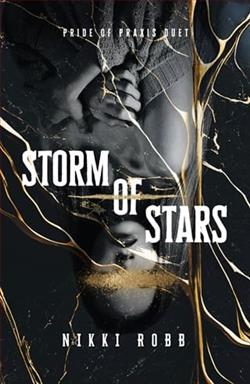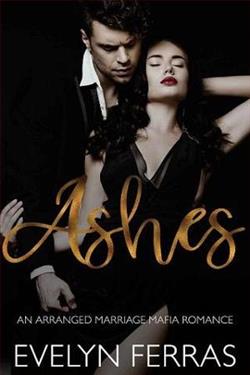Page 44 of Beyond the Lines
Fuck!
I open my mouth, then close it again.
There’s no good answer to that.
“That’s what I thought.” She sighs. “Criticism should be about the work, not the artist. And it should be constructive, not hurtful. Always. The fact that you know that tells me you might not be ready for an intensive seminar where honesty is paramount.”
“I am ready.” The words come out more desperately than I intended. “I’ve been working toward this for three years.”
“And I’ve been teaching for twenty.” Her voice softens slightly. “Look, you’re talented. But art isn’t just about technical skill—it’s about emotional maturity, about being able to share your vision, and about being able to give and take criticism without your ego getting in the way.”
My ego.
I want to argue that I’m not some prima donna hockey player who can’t handle criticism. But the evidence against me is pretty damning. Lea called me out on it, and now Professor Lucas has basically put me on the art world’s version of probation.
“I understand,” I say, though I want to plead my case, to tell her about how art has always been my escape, how it’s the one thing that’s truly mine, not something I do for my parents or my teammates, that it might just be my first love over hockey. But I doubt she wants to hear it.
“Good. I’ll keep an open mind about the seminar, but for now you’ve got some thinking to do, Mr. Andrews.” She straightens. “And Declan?”
I swallow hard. “Yes, Professor?”
“Next time, try focusing your attention on the model instead of your classmate. That’s what life drawing is about, after all.”
Great. She noticed that too.
My cheeks heat as I escape into the hallway, swallowing the humiliation that threatens to choke me. Outside, the air is crisp with early fall, but I barely notice. My mind is a hurricane of embarrassment and regret arising from the last catastrophic hour.
I’ve never felt more frustrated.
Not when my father called art a “waste of time” compared to hockey. Not even when the NHL scout called last year to see if I’d reconsidered going pro, and I had to explain for the hundredth time that I needed to finish my degree first.
This—this helpless, impotent rage—is new. And I hate it.
And all I can think about is how perfectly my own criticism applies to me:
Technically proficient but lacks soul.
Safe choices.
No risks taken.
Story of my fucking life.
But as I walk back to my apartment, a new emotion emerges, replacing the embarrassment and the frustration: anger. As irrational as I know it is, deep down, I don’t care, because Lea’s over-the-top reaction could have cost me everything.
The select seminar. My future. My dream.
I’ve spent the last three years working my ass off in every art class, perfecting my technique, staying up late to finish assignments even after grueling practices, only to have it all jeopardized because Lea decided to make a large scene about a small piece of criticism.
Getting emotional.
Confronting me.
Storming out.
And for what? Because I wrote a critique that—if I’m being honest—wasn’t even that harsh by art school standards, and nothing compared to the criticism working artists have to deal with every day.
I’ve had professors tear my work apart in front of the entire class. I’ve had classmates rip into my technique, my composition, and my subject matter. Art isn’t for the thin-skinned. You learn to take criticism, to extract the useful parts, and to discard the rest. It’s part of the process.















